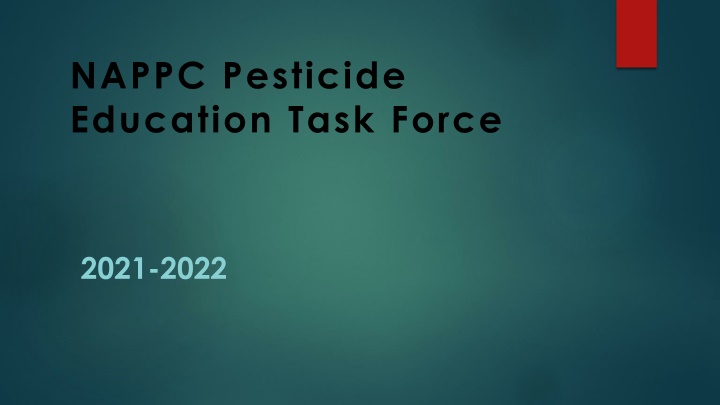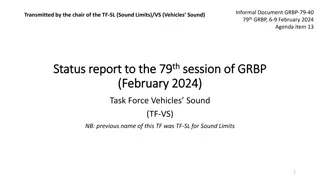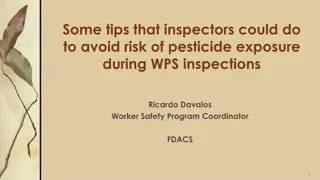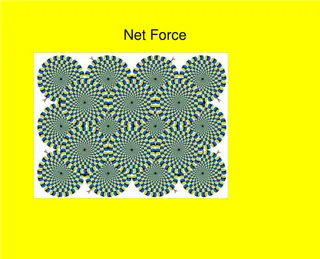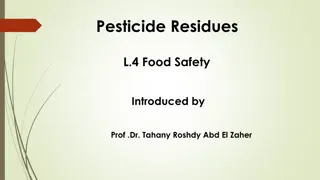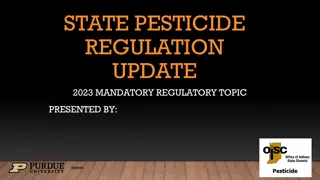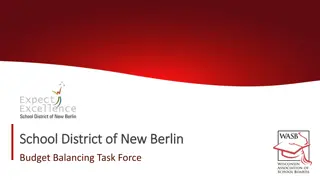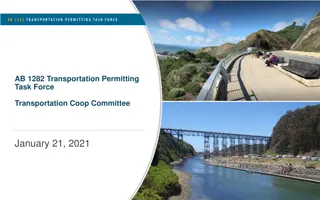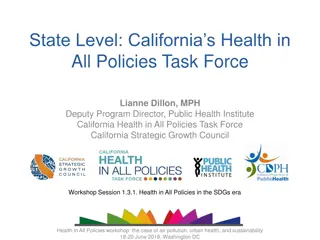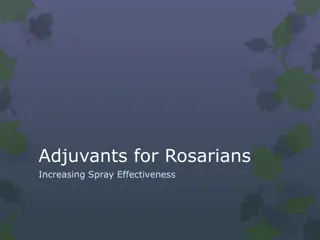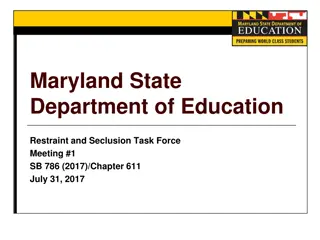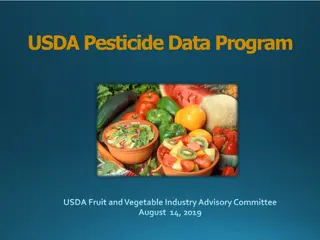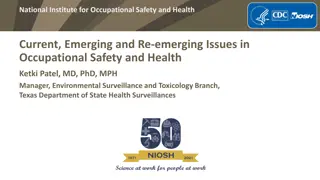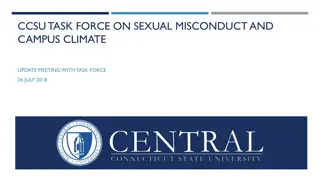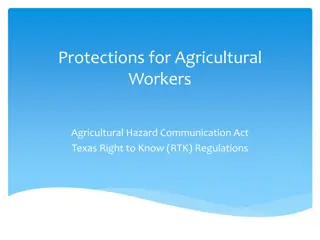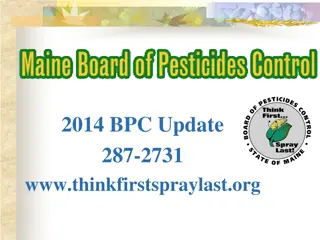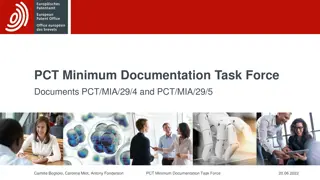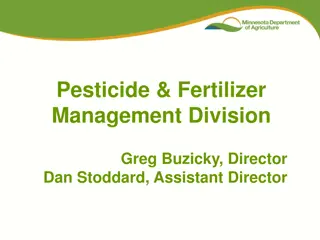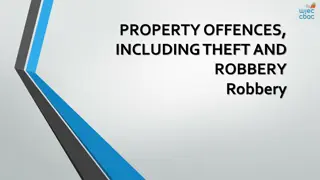NAPPC Pesticide Education Task Force 2021-2022 Summary
The NAPPC Pesticide Education Task Force for 2021-2022 aims to utilize pesticide registration and regulation as tools to safeguard and enhance pollinator health. The task force focuses on educating various audiences, including pesticide applicators, farmers, homeowners, educators, and state departments of agriculture, on reading labels to protect pollinators, improving the reporting of bee kill incidents, and educating about EPA risk assessment. Additionally, the task force strives to create a cohesive and active group by inviting guest speakers, including State and Tribal Pollinator Protection Programs. Accomplishments include developing materials to help all audiences read labels, distributing graphic cards, and working towards effective vector-borne disease control without harming pollinators.
Uploaded on Sep 30, 2024 | 6 Views
Download Presentation

Please find below an Image/Link to download the presentation.
The content on the website is provided AS IS for your information and personal use only. It may not be sold, licensed, or shared on other websites without obtaining consent from the author.If you encounter any issues during the download, it is possible that the publisher has removed the file from their server.
You are allowed to download the files provided on this website for personal or commercial use, subject to the condition that they are used lawfully. All files are the property of their respective owners.
The content on the website is provided AS IS for your information and personal use only. It may not be sold, licensed, or shared on other websites without obtaining consent from the author.
E N D
Presentation Transcript
NAPPC Pesticide Education Task Force 2021-2022
Objective of the Pesticide Education Task Force: Use pesticide registration and regulation as a tool to protect and promote pollinator health.
Audiences to reach: Pesticide Applicators Farmers and Ranchers Homeowners Educators and Extension Agents State Departments of Agriculture General Public Tribes
4 Task Force Focus Areas: Help all audiences read labels to protect pollinators Increase accurate reporting of bee kill incidents 1. 2. Educate all about EPA Risk Assessment 3.
5 MORE Task Force Objectives: Create a cohesive, active Task Force Invite guest speakers to TF meetings to help with various priorities. 1. Include State and Tribal Pollinator Protection Programs (P3s and MP3s)
6 Task Force Focus Accomplishments: Create a cohesive, active Task Force Regularly scheduled meetings met monthly Added new representation from strategic partners Presentations from outside experts to better understand issues Operated with sub-committees Used Pollinator Week for outreach 1. 1. 2. 3. 4. 5.
7 Task Force Focus Accomplishments: Help ALL read labels to protect pollinators Created and reviewed a graphic card to explain how to read a label to protect pollinators Distributed 10,000 copies of graphic card 1. NASDA newsletter 2. Bee Friendly Farming Newsletter 3. Pesticide Safety Education Program 4. NAPPC Website 5. NW IPM Center 6. Extension Foundation 7. Extension MP3 Working Group Oregon State 8. Pollinator Week Handout 9. American Mosquito Control Association 1. 1. 2.
9 Task Force Focus Accomplishments: Help Vector Borne Disease Control be effective without harming pollinators. Created three cards for specific audiences In review and design phase Based on NAPPC White Paper - Ginsberg 1. 2. 3. 4.
10 For Managers of HOA s, multi-family dwellings, etc.
11 For professional applicators
12 For homeowners and the public
13 Task Force Focus Accomplishments: Educate all about EPA Risk Assessment Created PowerPoint presentation for understanding EPA responsibility and process for pesticide registration Will be completed and presented by November Works to correct misinformation often repeated in discussions of pesticides 1. 2. 3. 4.
14 Task Force Focus Accomplishments: Increase accurate reporting of bee kill incidents Met with successful states (North Carolina and North Dakota) to understand efficient, well-communicated incident reporting Presenting to upcoming American Beekeeping Federation/Apiary Inspectors of America joint meeting on recognizing and reporting bee kills Linking to existing material (HBHC) Accurate photos supplied to TheBeeMD diagnostic tool 1. 2. 3. 4. 5.
2022-2023 Continue current focus and add: 15 New organizations and experts Endangered Species Act focus Keep the ball moving forward
